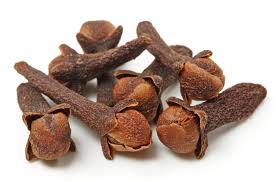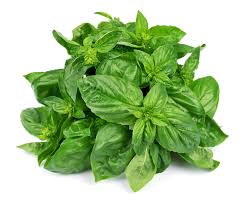Gastric acid, or simply called stomach acid, is a digestive liquid that contains hydrochloric acid. Stomach acid works to digest foods you eat. At the same time, it also helps kill harmful bacteria that enter your system. While there needs to be an acidic environment in your stomach, too much acid in stomach can lead to hyperacidity. The condition decreases the pH level in your stomach and can cause several complications.
Signs of Excess Stomach Acid
1. Mild Symptoms
Excessive acid production encourages the production of gas that will accumulate in your stomach, causing issues such as flatulence and stomach pain. These symptoms may be mild but are usually serious enough to keep you uncomfortable all the time. Some other mild symptoms include belching, bloating, and heartburn.
2. Acid Reflux
Also called gastrointestinal reflux disease (GERD), acid reflux refers to a condition in which the stomach acid moves up the esophagus. You are more likely to experience acid reflux when you have more acid and food content in your stomach. Symptoms include flatulence, bloating, abdominal pain, etc.
Be sure to seek medical attention because the acid can cause corrosion of the esophagus, which increases your risk of ulceration.
3. Ulcers
Too much acid in stomach can cause gastric ulcers. You get these ulcers when too much acid damages the lining of the stomach. If left untreated, these ulcers can lead to bleeding and perforation of the stomach. You may have to deal with life-threatening complications when the stomach content starts leaking into your abdominal cavity. Immediate medical attention is necessary in this case.
Note: Be sure to talk to your doctor if you have any of the aforementioned symptoms and signs. Timely medical attention can help prevent serious complications.
Causes of Excess Stomach Acid
Here are some of the most common causes:
- Milk: A glass of milk before bedtime seems to help keep you healthy, but it can trigger acid production during sleep. The worst thing is that milk has a rebound effect, which triggers acid secretion and makes you deal with heartburn in the middle of the night.
- Caffeine: Excessive intake of caffeine can increase the production of stomach acid.
- Smoking: Smoking relaxes the lower esophageal sphincter, which promotes the stomach to produce more acid. Moreover, it irritates your stomach lining and leads to several other complications.
- Alcohol: Drinking alcohol irritates your stomach lining and increases the production of stomach acid, which will cause other digestive problems over time.
- Diet: Excessive consumption of oily or spicy foods may well be the reason why you have too much acid in stomach. Foods rich in fiber take longer to digest, and your stomach continues to produce acid until all the food is digested, resulting in too much acid. Similarly, not having meals in a timely manner and a big gap between consecutive meals can also trigger the production of acid in the stomach.
- Stress: Chronic stress can cause several health problems, including increasing the amount of acid in your stomach.
- Bacterial Infection: You may notice an increase in stomach acid production if you have a bacterial infection, especially when it is caused by the bacterium H. pylori.
- Stomach Cancers: One of many reasons of excessive stomach acid is stomach cancer. Stomach cancers can increase the production of gastrin which promotes the release of stomach acid.
Home Remedies to Deal with Too Much Acid in Stomach
When you have too much acid in your stomach, the best thing is to see your doctor for advice. You can also try some home remedies.
1. Bananas

Eating bananas may help decrease stomach acid mainly because they are rich in potassium. Certain components in bananas can help produce mucus in your stomach, and this can protect your stomach linings.
Directions:
Simply get a ripe banana and eat it for relief. Opt for an overripe bananas to deal with a bad bout of acidity as they contain more potassium.
2. Clove

Eating clove helps limit the production of stomach acid mainly because it promotes the secretion of saliva which helps neutralize stomach acid. Clove also helps promote better digestion of food.
Directions:
Take a clove, bite on it, and let its juice stay in your mouth for a while. This will offer immediate relief.
3. Ginger

Regular consumption of ginger keeps your digestive system in a perfect condition. It also helps absorb and assimilate essential nutrients. Ginger is especially beneficial against stomach ulcers as it promotes mucus secretion.
Directions:
Take a small piece of ginger and chew it for some time. You can also make a cup of ginger tea and drink it for relief.
4. Basil Leaves

Basil leaves have carminative and soothing effects on your system. This is the reason why they offer quick relief from gas, acidity, and nausea.
Directions:
- Take some basil leaves and eat them as soon as you notice any sign of acidity. Always chew them thoroughly for good effects.
- You can also put some basil leaves in a cup of boiling water, and drink the liquid after a few minutes for relief.
5. Cinnamon

Cinnamon is great for the health of your digestive system mainly because it acts as an antacid. It is extremely effective against bloating and flatulence.
Directions:
Take a cup of water and dissolve a teaspoon of cinnamon powder in it. Bring the mixture to a boil and let it steep for a few minutes. Drink it thrice a day for relief.
6. Buttermilk

The presence of lactic acid makes buttermilk an effective home remedy for acidity.
Directions:
Simply drink plain buttermilk thrice a day until you get relief. You can also add a teaspoon of ground coriander leaves or a little black pepper to buttermilk for quick relief.
